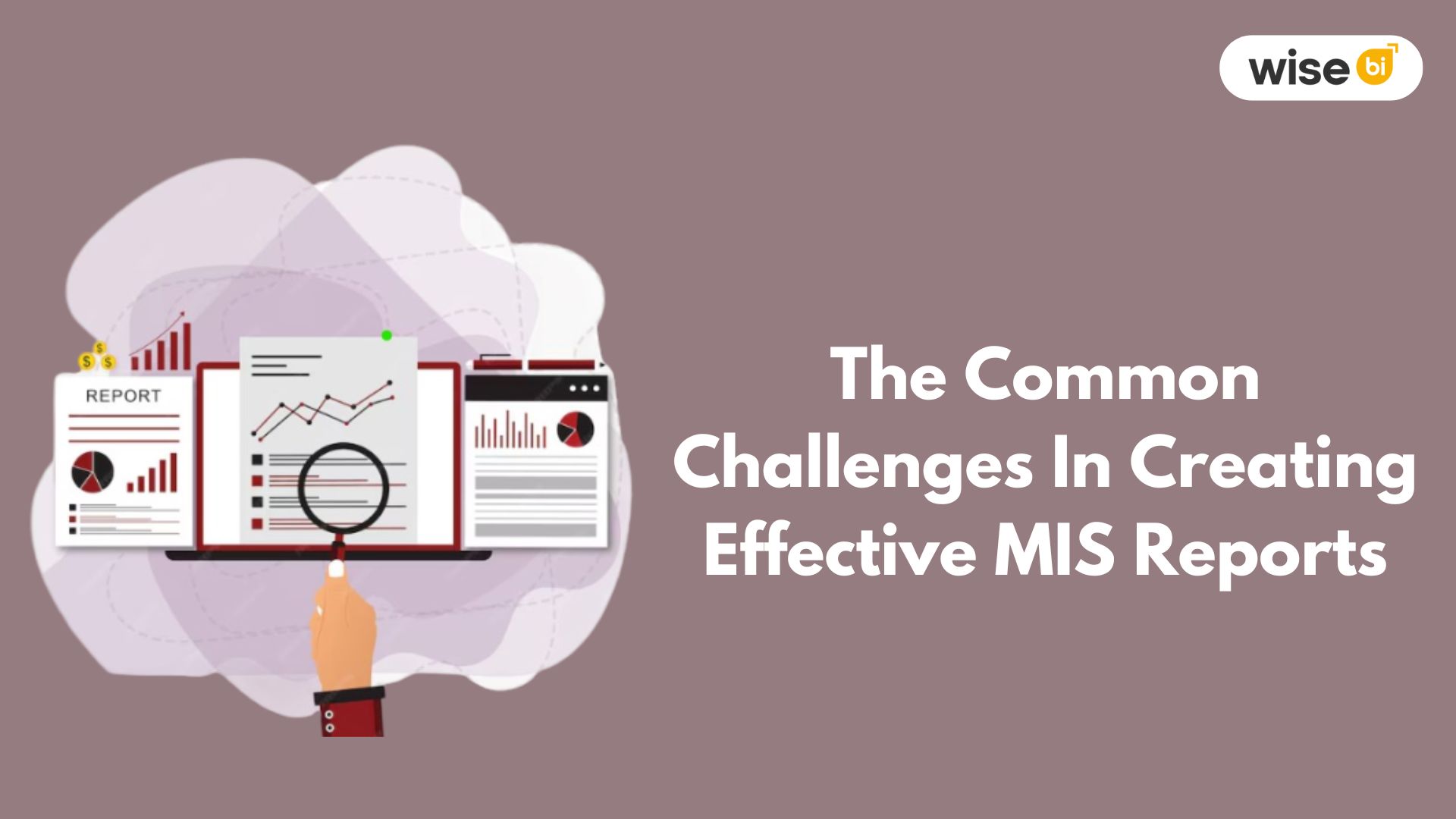What Are The Common Challenges In Creating Effective MIS Reports?
 Swathi G
Swathi G
Have you ever struggled to generate reports that accurately reflect your company's performance? Do you find the process of developing Management Information System (MIS) reports to be challenging and error-prone? You are not alone. Many organizations have major obstacles in developing effective MIS reports that can lead to informed decision-making and operational efficiency. The article will explain what MIS reporting is, why it is important, what the most typical obstacles are, and how to solve them. Let's expand into the complexities of MIS reporting and find ways to make your reporting process easier and more successful.
What is MIS Reporting?
MIS reporting is the process of gathering, analyzing, and presenting data to help management make decisions. It entails the use of a variety of tools and strategies to convert raw data into useful information. This data is usually delivered in the form of reports, dashboards, and summaries that highlight key performance indicators (KPIs) and metrics related to the organization's goals and objectives. MIS reporting is critical for providing a full perspective of corporate operations, allowing managers to track progress, spot patterns, and make strategic decisions based on data insights.
Importance of MIS Reporting
MIS reporting is important for a variety of reasons. For starters, MIS Reporting improves informed decision-making by giving accurate and timely insights, allowing managers to make well-informed decisions that drive business success. Second, it improves operational efficiency by finding areas for improvement and streamlining operations, resulting in lower costs and more productivity. Third, MIS reports are critical for strategic planning because they provide a complete picture of the organization's performance, influencing long-term objectives and resource allocation. Finally, they ensure compliance and accountability by providing accurate reporting, which helps meet regulatory obligations and maintain transparency with stakeholders.
What are the common challenges?
Despite its significance, developing excellent MIS reports is plagued with challenges:
Data quality issues: Inaccuracies, inconsistencies, and inadequate data might result in inaccurate reports.
Integration challenges: Consolidating data from numerous sources, particularly in large businesses with multiple systems, can be difficult.
Lack of standardization: Inconsistent reporting formats and methods might produce reports that are difficult to read.
Technical limitations: Outdated or ineffective MIS technologies might limit the scope of analysis and slow down the reporting process.
User resistance: Employees may be resistant to implementing new systems or processes, reducing their effectiveness.
Time constraints: Producing detailed and accurate reports is difficult, especially when working with large amounts of data.
How to Overcome These Challenges
Overcoming these challenges requires a combination of technological solutions and process improvements:
Address data quality concerns: Implement data governance processes, such as regular audits and validation checks, to ensure that data standards remain high.
Invest in powerful integration tools: Simplify the data aggregation process and ensure interoperability with existing systems.
Standardize reporting format and procedures: Create and implement templates and rules to ensure uniformity and clarity.
Upgrade to modern MIS technology: Use advanced MIS reporting solutions with advanced analytics, real-time reporting, and user-friendly interfaces to improve the reporting process.
Offer training and support: Comprehensive training can help staff overcome opposition and enable the smooth acceptance of new technologies.
Automate repeating tasks: Save time and eliminate errors by automating time-consuming reporting procedures, allowing you to focus on analysis and decision-making.
Conclusion
Creating excellent MIS reports is critical for making informed decisions, improving operational efficiency, and facilitating strategic planning. However, it has hurdles like data quality issues, integration difficulties, and a lack of standardization. By solving these difficulties through technical upgrades, process changes, and personnel training, firms may create strong MIS reports that provide significant insights and contribute to their overall success. With the appropriate techniques and technologies, MIS reporting can be a valuable asset, translating data into actionable insights that help your company grow.
Subscribe to my newsletter
Read articles from Swathi G directly inside your inbox. Subscribe to the newsletter, and don't miss out.
Written by

Swathi G
Swathi G
I am a dedicated content writer specializing in logistics, driven by a passion for unraveling the complexities of the industry. With a focus on making intricate logistics concepts accessible, I bring clarity to supply chain management, transportation, inventory optimization, and emerging technology trends. Through meticulously researched articles, I aim to bridge the gap between technical details and reader comprehension, fostering a deeper understanding of the logistics landscape. My work seeks to inform, educate, and ignite meaningful discussions within the logistics community.